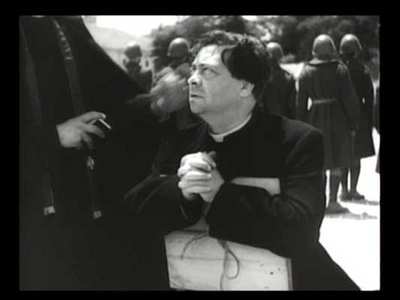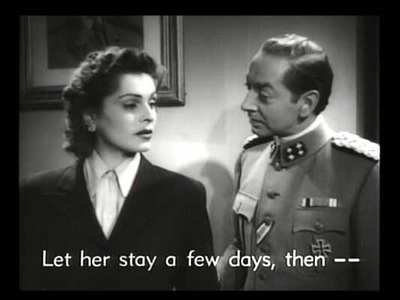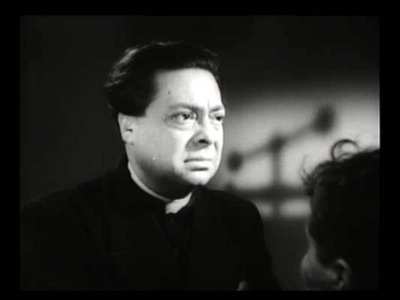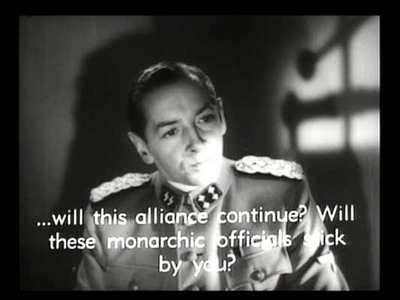Review of Rome, Open City
Introduction
The Italian cinema spawned an influential movement called neo-realism, a movement that lasted from 1943 to 1952. Neo-realism films were shot on location as opposed to within a studio setting, generally in poor run-down suburban areas with the local population using instead of extras. Children also had large parts in neo-realist films, although their roles were generally observatory rather than as active participants.
The film that introduced neo-realism to the world was Rome, Open City, the first film seen from Italy after the end of World War II. Directed by Roberto Rossellini, the film tells the tragic story of Italian resistance against the German occupying army and Italian fascist authority. Central to the plot are Pina (Anna Magnani) and Father Don Pietro (Aldo Fabrizi), both previously considered lightweight actors.
Pietro is a member of the Church who is helping the resistance, in particular Manfredi (Marcello Pagliero) who is one of the Resistance leaders. Manfredi meets Pietro via old friend Pina who is due to marry Francesco the following day. Betrayed by Manfredi`s actress ex-lover who has succumbed to the benefits of the occupying army, the Gestapo and army raid the apartment block where Pina lives. Francesco is captured and taken away, Pina tragically running after the lorry he is imprisoned in.
Meanwhile Pietro, Manfredi and an Austrian deserter are snatched from the streets by the Gestapo and thrown in the cells. Manfredi, who believed he was close to cracking earlier in the film, is brutally tortured in an attempt to extract information on the resistance, it`s horrifying effects captured vividly on film.
The end of the film is quite dramatic, and probably quite shocking at the time it was made.

Video
Black and white, not surprisingly for a film shot in 1945. A lot of artefacts on the print, but when you consider how old this film is then it`s really not that surprising. The film was shot on location using hand-held camera`s and there is some drift present in some shots. Also lacking some lighting work in some shots where it is too dark, and the age of the film shows with contrasting light and dark exposure in the same scenes.

Audio
Suitably over the top scoring from Renzo Rossellini, brother of Roberto. Some of the editing is a bit jarring as the music cuts off abruptly across scenes, but this can be forgiven. Soundtrack is in Italian with English subtitle, although for some reason chunks of the dialogue has not been subtitled.

Features
One extra, the documentary The Children Of Rome, Open City. Essentially follows an now 70 year old Vito Annichiarico (Pina`s son in the film) around the area where the film was shot where he reminisces about those days and meets a couple of people who were also there. Also includes interviews with descendants of Rossellini and archive footage of Fabrizi and Magnani. Fascinating stuff, mainly in subtitled Italian.

Conclusion
This is quite an amazing film considering the time it was filmed. This film not only managed to break all the rules of conventional cinema at the time, but also produced a compelling story to go with it. Fresh from the occupation and recently liberated by the Allies, Rossellini seems to capture the essence of what life in Italy must have been like after Italy had decided to switch sides during the war.
Magnani and Fabrizi are compelling, Magnani`s performance in particular is quite astounding. It was thought at the time that Rossellini was gathering the money to make this that casting the two would make Rome, Open City a lightweight film. This was due to both actors principally playing comic roles previously. Cast against type, the two light up the screen with dramatic tension and propel the film forward.
The story itself is compelling, although it suffers slightly from loss of dialogue and editing. On the one hand, you have the main protagonists trying to survive and also doing their duty in either aiding or participating in the resistance. On the other hand, you have the occupying forces working together with the fascist authorities to capture members of the resistance. In the middle, you have the confused actresses who see their life getting better by being seduced by the occupying army and the riches that brings, a major shock coming from the realisation of what they have become and done when they physically see the consequences of their actions.
An amazing film that thoroughly deserves its plaudits.
Your Opinions and Comments
Be the first to post a comment!